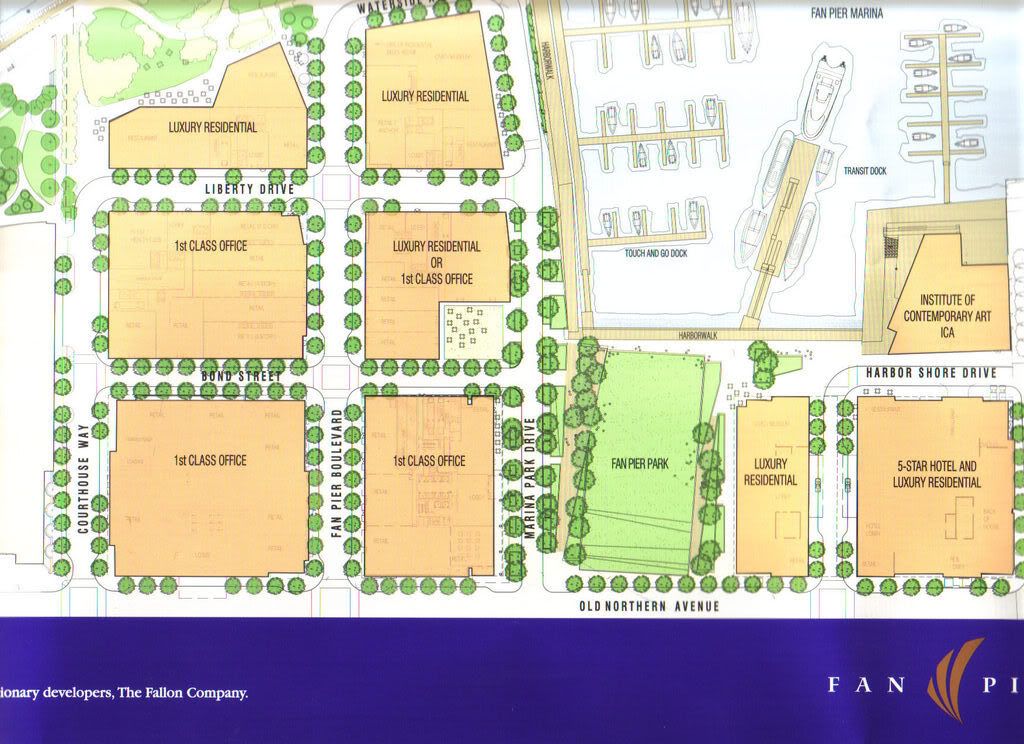Turner Construction wins contract for Fan Pier office tower
Boston Business Journal - 2:40 PM EDT Wednesday, June 20, 2007
by Michelle Hillman
Journal staff
The Fallon Co. has awarded Turner Construction Co. the contract to build the first office tower on Fan Pier.
The 500,000-square-foot, 18-story office building will break ground in October and is expected to open by the end of 2009 when demand for office space is expected to be at a high, said Charles Buuck, senior vice president at Turner Construction. The building will cost $125 million to construct.
"We're going to start the first building," said Buuck. "You know that there's going to be demand for office space in the city coming up."
The construction contract is one of several expected to be awarded by the Fallon Co. which is developing the waterfront site in South Boston with its partner Massachusetts Mutual Life Insurance Co.
The Boston Business Journal first reported in January that Fallon would move ahead with the construction of an office building on a "speculative" basis or regardless of whether he had signed leases.
Last June Fallon hired three architecture firms to design four buildings totaling 1.8 million square feet and including office, hotel, residential and retail uses.
Since buying the 20.5 acre site in 2005 for $115 million, Fallon and MassMutual have hired architects, publicists and real estate brokerage firms to help him design, market and lease what will eventually be a nine-building, 3 million square foot development including office, hotel, residential and retail uses.
Fallon has opened an on-site marketing center and recently began providing hot-air balloon rides to potential tenants and residents.
Link


